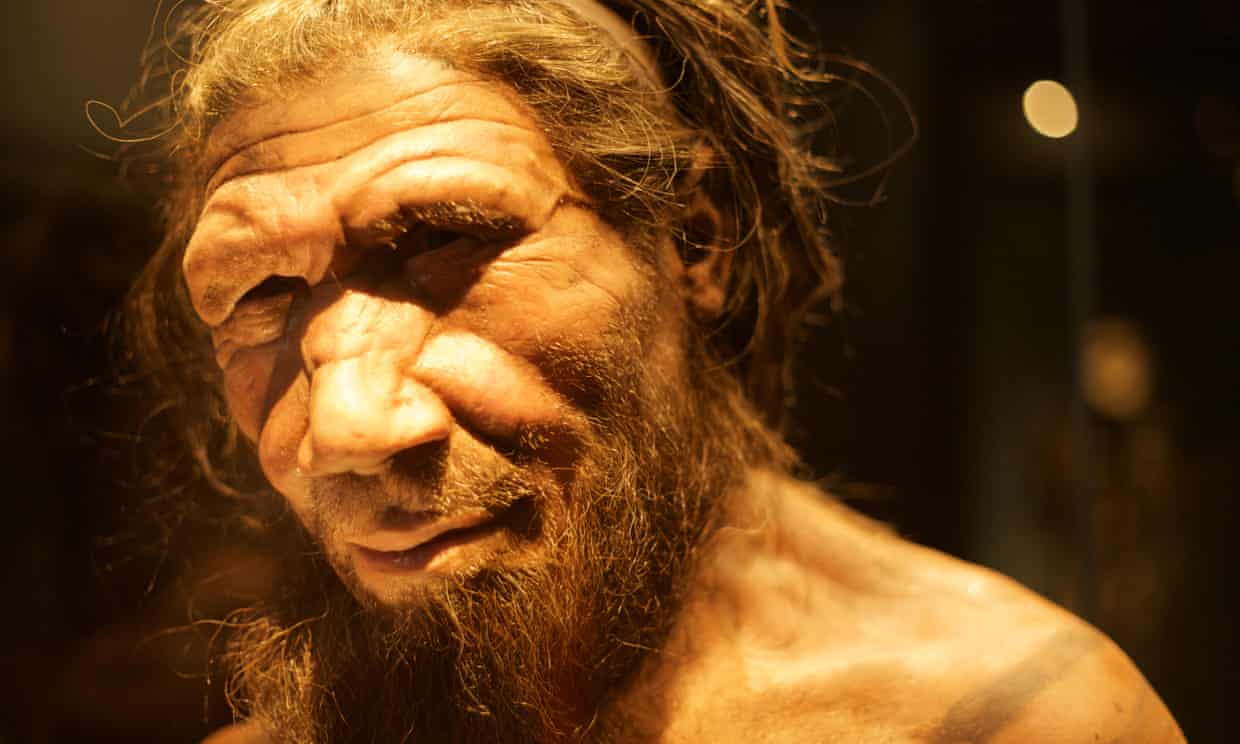A reconstruction of a Neanderthal created for the Natural History Museum in London.
Photograph: Richard Gray/Alamy
Until now, many Neanderthal sites had shown only small-scale use of marine resources; for example, scattered shells. But now archaeologists have excavated a cave on the coast of Portugal and discovered a huge, structured deposit of remains, including from mussels and limpets, dating to between 106,000 and 86,000 years ago.
Researchers say the discovery shows that Neanderthals systematically collected seafood: in some layers the density of shells was as high as 370kg per cubic metre. They say this is exciting because the use of marine resources on such a scale and in such a way had previously been thought to be a trait of anatomically modern humans.
Read the rest of this article...

No comments:
Post a Comment
Note: Only a member of this blog may post a comment.